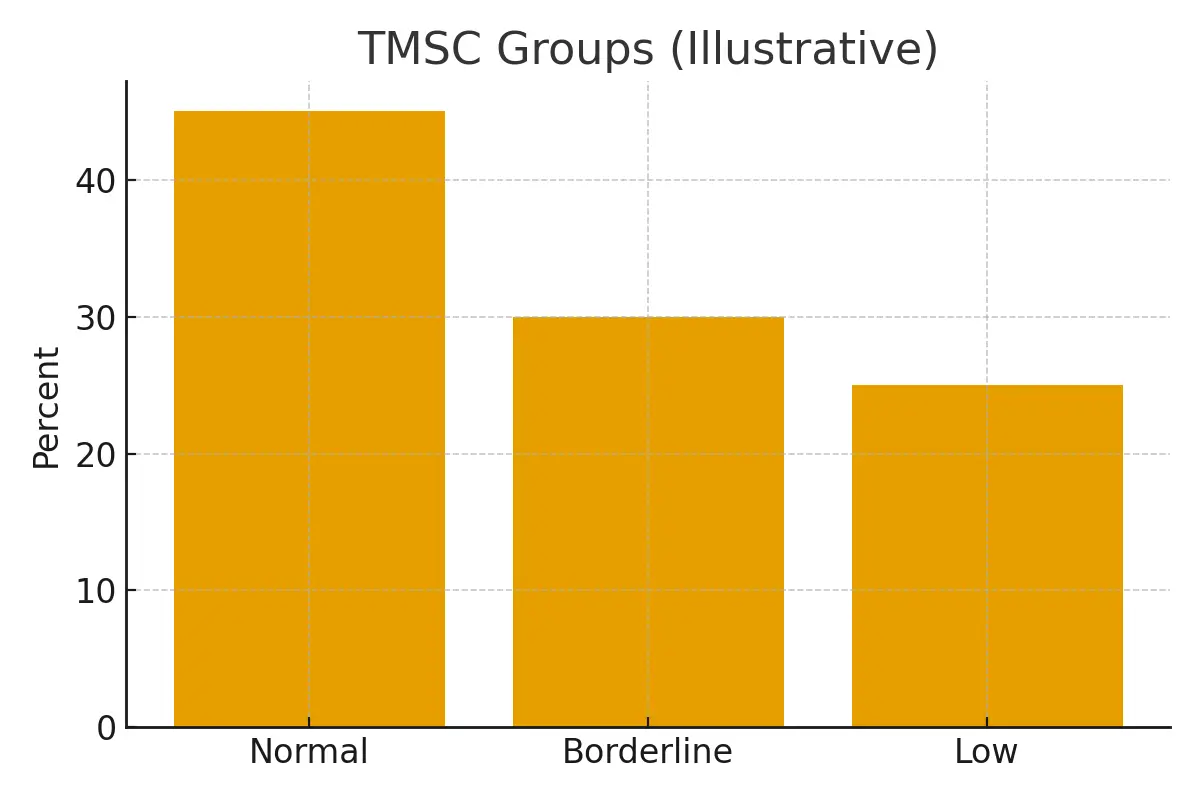
A plain-English guide to where lifestyle factors and nutraceuticals fit within male fertility care. You’ll learn what they can realistically improve, how long changes take, and how upstream decisions (like diet, sleep, and toxin exposure) influence downstream sperm quality, DNA fragmentation, and embryo development.
Who It Helps
This pathway is ideal for:
- Men with mild to moderate semen abnormalities (count, motility, morphology).
- Those with elevated DNA fragmentation, lifestyle risk factors, or borderline hormone labs.
- Couples planning IUI/IVF who want to protect embryo quality.
- Men with no major anatomical or hormonal issues but with suboptimal lifestyle patterns.
It may not be the best standalone path for:
- Severe Oligospermia (<5 million/mL) or azoospermia.
- Clear hormonal dysfunction requiring medical therapy.
- Varicoceles that meet criteria for surgical repair.
- Reproductive genetic issues or failed prior IVF cycles.
Signals that guide fit include age, semen history, hormone labs, oxidative stress markers, ultrasound findings, and prior response to lifestyle changes or supplements.
Step-by-Step Pathway
A simple, low-stress sequence with timing checkpoints:
-
Baseline Testing (Week 0)
Semen analysis + DNA fragmentation + basic hormones.
Identify target areas: oxidative stress, count issues, varicocele suspicion, or lifestyle burdens. -
Lifestyle Foundations (Weeks 1–12)
Sleep schedule, nutrition, weight targets, toxin reduction, heat exposure control.
Recheck symptoms and habits at 6 weeks. -
Targeted Supplements (Weeks 1–16)
Select only evidence-supported supplements based on labs—avoid the “kitchen sink.”
Track changes at 8–10 weeks. -
Checkpoint 1 (Week 12–14)
Repeat semen analysis ± DFI.
Decide: continue, escalate, or switch pathways. -
Checkpoint 2 (Week 24–28)
Final reassessment before IUI/IVF to safeguard embryo quality and reduce cycle stress.
Pros & Cons
Pros
- Strong effect on oxidative stress and DNA fragmentation.
- Low-risk, cost-controlled, and compatible with any fertility plan.
- Improves overall health—energy, weight, metabolic markers.
- Avoids unnecessary procedures or medications.
Cons
- Results take 2–3 sperm cycles (70–90 days).
- Benefits plateau if underlying issues (varicocele, hormones) remain untreated.
- Supplements can become expensive if not targeted.
- Requires consistency in habits and routine tracking.
Costs & Logistics
We break expenses into predictable line items:
- Supplements: single-ingredient, verified brands only (₹ / $ ranges provided during consult).
- Lab work: semen analysis, DFI, hormones, oxidative stress tests.
- Optional imaging: scrotal ultrasound.
- Follow-ups: checkpoints every 8–12 weeks.
Clear cash-flow plans help avoid surprise bills: pre-auth reminders, budget templates, and auto-tracking checklists to keep everything simple.
What Actually Improves Outcomes
High-impact actions:
- Sleep >7 hrs, weight optimization, anti-inflammatory diet.
- Eliminating smoking/vaping, reducing alcohol.
- Avoiding heat exposure (sauna, laptop on lap, tight clothing).
- Correct dosing of CoQ10, omega-3, antioxidants only when indicated.
- Treating metabolic issues (vitamin D deficiency, insulin resistance).
- Consistent ejaculation schedule (every 2–3 days).
Low-impact / rarely helpful:
- Generic fertility multivitamins with 20+ ingredients.
- Extreme diets or overtraining.
- Unverified herbal blends.
- Supplements without lab-based indications.
- “Quick fix” 2-week protocols.
Case Study
From Uncertainty to a Structured Plan
A 34-year-old male presented with borderline motility and high DNA fragmentation. His lifestyle review revealed poor sleep, high work stress, and daily heat exposure from long motorcycle commutes.
Plan:
- Twelve-week lifestyle reset (sleep, anti-inflammatory diet, heat mitigation).
- Targeted antioxidants based on labs (CoQ10 + NAC).
- Varicocele ruled out by ultrasound.
- Checkpoints at 10 and 22 weeks.
Outcome:
Motility improved by 38%, DFI dropped from 32% to 14%, and embryo quality stabilized in the couple’s next IVF cycle—all achieved with clear communication, realistic thresholds, and a predictable timeline.
Mistakes to Avoid
- Taking too many supplements without lab data.
- Ignoring heat exposure and sleep, which impact sperm more than vitamins.
- Not repeating semen analysis before IVF/IUI.
- Relying on “fertility gummies” or influencer products.
- Delaying medical evaluation when red-flags appear.
FAQs
Q. How long do supplements take to work?
Ans : 8–12 weeks minimum — sperm need a full cycle.
Q. Do I need every antioxidant?
Ans : No. Only choose options supported by your labs or symptoms.
Q. Can lifestyle fix severe issues?
Ans : Usually not; severe abnormalities need parallel medical or surgical evaluation.
Q. Should I change anything before IVF?
Ans : Yes—DFI, heat exposure, and sleep improvements directly affect embryo quality.
Next Steps
- Free 15-min nurse consult
- Upload your labs for review
- Personalized cost breakdown for your case
Related Links

Dr. Kulsoom Baloch
Dr. Kulsoom Baloch is a dedicated donor coordinator at Egg Donors, leveraging her extensive background in medicine and public health. She holds an MBBS from Ziauddin University, Pakistan, and an MPH from Hofstra University, New York. With three years of clinical experience at prominent hospitals in Karachi, Pakistan, Dr. Baloch has honed her skills in patient care and medical research.





